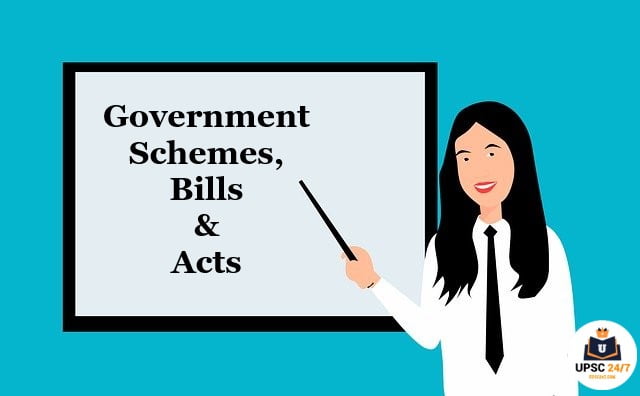Essential Defence Services Bill 2021 | UPSC | Why In The News ?
Recently, the government introduced the Essential Defence Services Bill, 2021 in Lok Sabha. It is aimed at preventing the staff of the government-owned ordnance factories from going on a strike.
What is the Essential Defence Services Bill 2021 ?
The Bill allows the central government to prohibit strikes, lock-outs, and lay-offs in units engaged in essential defence services.
Key features of the Bill include:
Essential defence services:
Essential defence services include any service in:
- Any establishment or undertaking dealing with production of goods or equipment required for defence related purposes, or
- Any establishment of the armed forces or connected with them or defence.
These also include services that, if ceased, would affect the safety of the establishment engaged in such services or its employees. In addition, the government may declare any service as an essential defence service if its cessation would affect the:
- Production of defence equipment or goods
- Operation or maintenance of industrial establishments or units engaged in such production, or
- Repair or maintenance of products connected with defence.

Public utility service:
The Bill amends the Industrial Disputes Act, 1947 to include essential defence services under public utility services. Under the Act, in case of public utility services, a six-week notice must be given before:
- Persons employed in such services go on strike in breach of contract or
- Employers carrying on such services do lock-outs.
Strikes:
Under the Bill, strike is defined as cessation of work by a body of persons acting together. It includes:
- Mass casual leave
- Coordinated refusal of any number of persons to continue to work or accept employment
- Refusal to work overtime, where such work is necessary for maintenance of essential defence services
- Any other conduct which results in, or is likely to result in, disruption of work in essential defence services.
Prohibition on strikes, lock-outs, and lay-offs:
Under the Bill, the central government may prohibit strikes, lock-outs, and lay-offs in units engaged in essential defence services. The government may issue such order if necessary in the interest of:
- Sovereignty and integrity of India
- Security of any state
- Public order
- Public
- Decency or
- Morality.
Read Also – Rooftop Solar Scheme | UPSC
The prohibition order will remain in force for six months, and may be extended by another six months.
- Strikes and lock-outs that are declared after the issue of the prohibition order, or had commenced before the prohibition order was issued will be illegal.
- The prohibition will not apply to lay-offs made due to power shortage or natural calamity, or lay-offs of temporary or casual workmen.
Punishment for illegal lock-outs and lay-offs:
- Employers violating the prohibition order through illegal lock-outs or lay-offs will be punished with up to one year imprisonment or Rs 10,000 fine, or both.
Punishment for illegal strikes:
- Persons commencing or participating in illegal strikes will be punished with up to one year imprisonment or Rs 10,000 fine, or both.
- Persons instigating, inciting, or taking actions to continue illegal strikes, or knowingly supplying money for such purposes, will be punished with up to two years imprisonment or Rs 15,000 fine, or both.
- Further, such an employee will be liable to disciplinary action including dismissal as per the terms and conditions of his service.
- In such cases, the concerned authority is allowed to dismiss or remove the employee without any inquiry, if it is not reasonably practicable to hold such inquiry.
- All offences punishable under the Bill will be cognisable and non-bailable.
Some Additional Information :
Industrial Disputes Act 1947
It defines public utility service and strike, it also puts certain prohibitions on the right to strike. It provides that no person employed in public utility service shall go on strike in breach of contract:
- Without giving the employer notice of strike within six weeks before striking.
- Within fourteen days of giving such notice.
- Before the expiry of the date of strike specified in any such notice as aforesaid.
- During the pendency of any conciliation proceedings before a conciliation officer and seven days after the conclusion of such proceedings.
- It is to be noted that these provisions do not prohibit the workmen from going on strike but require them to fulfill the condition before going on strike.
- Further these provisions apply to a public utility service only.
Source – PRSIndia







